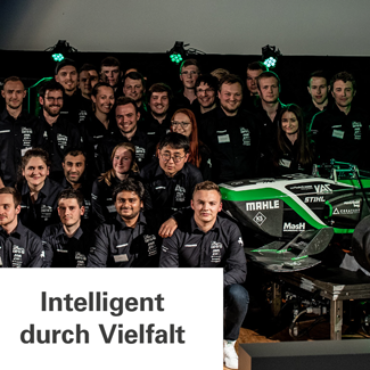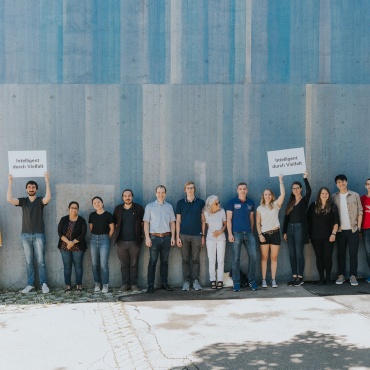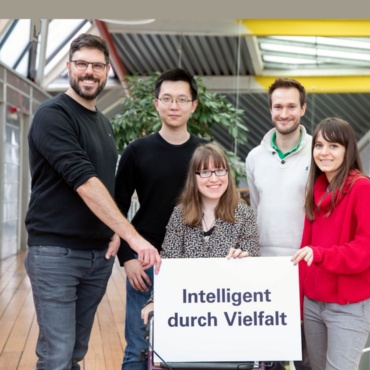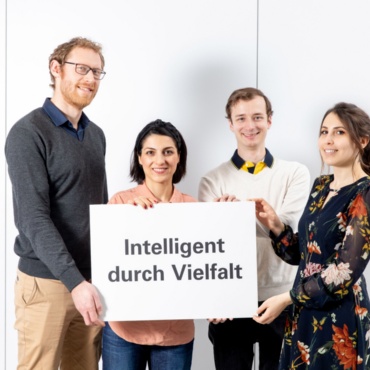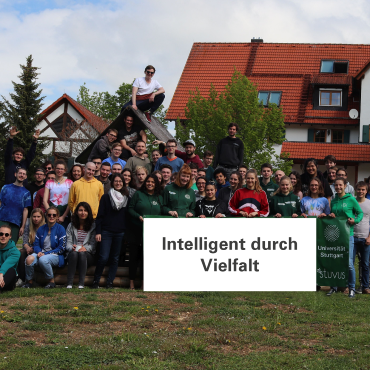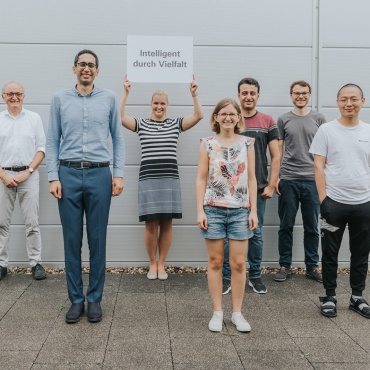The Stuttgart Way strongly influences the guiding principles of networked disciplines – a very important part of the University of Stuttgart’s profile. Cultural diversity and the consistent cooperation between complementary subjects encourage different ways of thinking. Johannes Kästner’s team stands for diversity at the University of Stuttgart. Besides the Institute for Theoretical Chemistry, Prof. Johannes Kästner works on projects in Stuttgart's Cluster of Excellence SimTech and the Collaborative Research Center SFB 1333.
Introducing the team
16 people, but because some only join us for short projects (1-3 months), the number of team members fluctuates somewhat.
Our team members include students from the fields of chemistry, physics, material science and SimTech; from bachelor students to pensioners; from eight different countries and even more different native languages from across three continents; two genders; various family statuses; parental backgrounds range from professors to seamen – and everything in between.
To solve the mysteries of chemistry using computer simulations, and to develop algorithms to do this faster and more accurately.
The more diverse a team is, the more varied the ideas, approaches and solutions it develops. Everyone in our team has their own talent that the other team members don’t have. We complement each other well. However, it can be challenging to find a common wavelength. The art of communication between physicists (formulas) and chemists (concepts) are quite different. And it gets even more interesting when two people use the same term for two completely different things. Just ask a mathematician and a microbiologist what they understand by the word “vector”. By interacting with different people, one not only learns subject-related skills, but also social skills – the more different the people are, the more one learns.
About the series “Diversity Promotes Intelligence”
In a series of articles, we will be introducing teams who view diversity as a matter of course. The motivation behind this series, is the University of Stuttgart’s new diversity concept, initiated by the Vice Rector for Early Career research and Diversity.
Diversity promotes intelligence
[Photos: GTUS-Max Partenfelder, o.A., o.A., o.A., o.A., o.A., o.A.]




